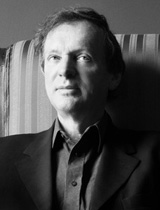Dr. Rupert Sheldrake is often described as one of the world's most controversial scientists. He spoke with me from London by phone about his current theories.

He says every person, animal, and even a cell inherits a collective memory from past members of its species, and contributes to that future collective memory. Teach a rat in London a trick, he says, and that same trick will be easier for a rat in Tucson to learn because of those rats' interconnectedness.
Listen:
Sheldrake is a Cambridge-trained biochemist whose theories of morphic resonance, of consciousness and telepathy, and rejection of what he calls the dogmas of science have garnered him both devoted followers and impassioned critics.
Throughout his long career, Sheldrake has shown himself to be a free thinker, someone who consistently pushes the boundaries of science.
He will be speaking in Tucson at the Berger Performing Arts Center, 1200 W. Speedway Blvd., on Sunday, Feb. 9 at 3 p.m. Visit the New Ground Events website for more information.

By submitting your comments, you hereby give AZPM the right to post your comments and potentially use them in any other form of media operated by this institution.